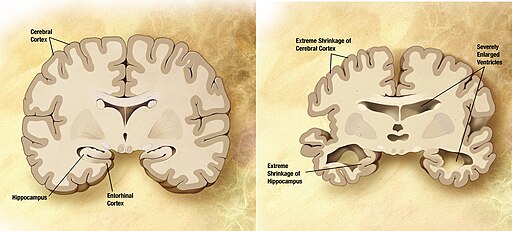We’ve discussed lemons for skin health and beauty, but what about the awesome benefits of lemon water for your liver, your gallbladder and even your energy? Not to mention the zesty taste! Lemon water has this sort of ambiguously detox-y reputation on the interwebs. Seems like a lot of people like the way it makes them feel, most people seem to feel it does something related to detox but isn’t sure quite what, and some people claim it’s the cure-all. I’m not going to ever call anything a cure-all because every person’s physiology is unique, but there are some things that are pretty universally good, and as it turns out having a nice, hot lemon water in the morning is one of those.

The benefits of lemon water make this little guy a superfood. Thanks to Evan Amos for the great photo.
The Actual Benefits of Lemon Water
Detoxify
- The acidity of lemon juice makes it a much-used cholagogue for herbalists and even the doctors of yore (yore has to be one of my favorite words – I couldn’t resist a chance to sneak it in there). Cholagogues promote the discharge of bile from the system, purging it downward. In plain English, that means that when you eat or drink lemon or lemon juice it stimulates your body to release bile into your intestinal tract to pass through into the stool. Bile helps you to digest fats that you eat, and it also helps eliminate cholesterol and fat soluble toxins. This makes lemon water a gentle detoxifier.
- Just as a fun factoid, if you’re not sure if something is a good cholagogue (the new word of the day), just taste it. Cholagogues are usually strongly sour or bitter and you can feel that little salivary gland at the back of your jaw start to freak out. Lemons are all over this!
- Your liver does much of it’s heavy lifting overnight while you sleep. In the morning there can be a back-log of toxins from the night before that your body would love to eliminate. To do that it honestly benefits pretty greatly from both the water – especially warm water, and the lemon juice itself.
- Lemon juice may even stimulate healthy production of both bile and stomach acid and it was used historically to do just that, although there isn’t research out there to support this use.
Hydrate
- In addition to the lemon, there’s the water and the water is actually key to this whole thing. Detoxification, which is essentially cleaning, requires water just like every other washing job you’ve ever done. Have you ever tried cleaning the dishes without water? Washing the car? Yup. All hinges on water.
- Let’s face it – we all struggle for that 8-10 glasses of water we’re supposed to get every day. With lemon water at least one of them tastes good!
Think More Clearly
- There is a strongly established link between getting enough water and using your brain effectively. The mountain of research on this link for adults is huge and there’s even research showing clearly this link in kiddos.
- Essential oil of lemon, which is the lemon smell released by the lemon water, is also shown to improve mood and cognitive performance in adults, so double whammy.
- Triple whammy! The bioflavenoids in citrus fruit are also shown to boost cognitive performance including nobilitin and hesperidin.
Lose Weight and Boost Heart Health
- A study from the Journal of Clinical Endocrinology and Metabolism showed that drinking more water boosts metabolism by about 30% for both men and women. That is incredibly helpful! The study went on to say that people who drank 1.5 liters of water per day burn an additional 17,400 calories over a year just through this one simple step. That’s a weight loss of 5 pounds, just by drinking water.
- An additional study on the lemon detox diet showed that adding lemon detox drink to a low calorie diet actually improves the cardiovascular benefits of that diet. They compared three groups, one eating a normal diet, one eating a calorie restricted diet and one eating a calorie restricted diet plus lemon water sweetened with maple syrup. Both low calorie groups lost weight, lowered their insulin and reduced their waist-hip ratios but only the lemon water group showed improvements in cardiovascular inflammation.
Get Your Antioxidants
- Lemon water from the recipe below has about 22 mg of vitamin C, or 36% of your daily value. It also has small amounts of vitamin A and vitamin E.
- Citrus bioflavenoids are an incredibly diverse group of compounds that are high-powered antioxidants and every day there is new research emerging for compounds such as hesperidin, quercitin, rutin, nobilitin and there are literally hundreds of others that have yet to be researched.
Boost Your Happy
- Lemon essential oil is one of the scents most associated with elevated mood. It is stimulating to the energy but not agitating – it remains calming to the nerves. In short, it gives you the happy.
Not only that but one of the best benefits of lemon water is that you can drink this, and also your coffee. It doesn’t have caffeine and so won’t conflict at all with that beloved morning ritual. Now – if you want to enjoy the health benefits of lemon water, here’s a fantastic recipe:
Lemon Water Recipe
Juice from 1/2 large lemon or 1 small lemon
Zest from the peel – just a few swipes will do
12-16 oz hot water (I prefer 16 to soften the tartness)
If you can’t tolerate the tartness then a little bit of raw honeyMix it all together in your favorite mug and enjoy the lovely fresh smell, the tart wake-me-up taste and all those health benefits of lemon water. And no worries – you can still have a coffee or tea if you want without worrying about being over-caffeinated.













